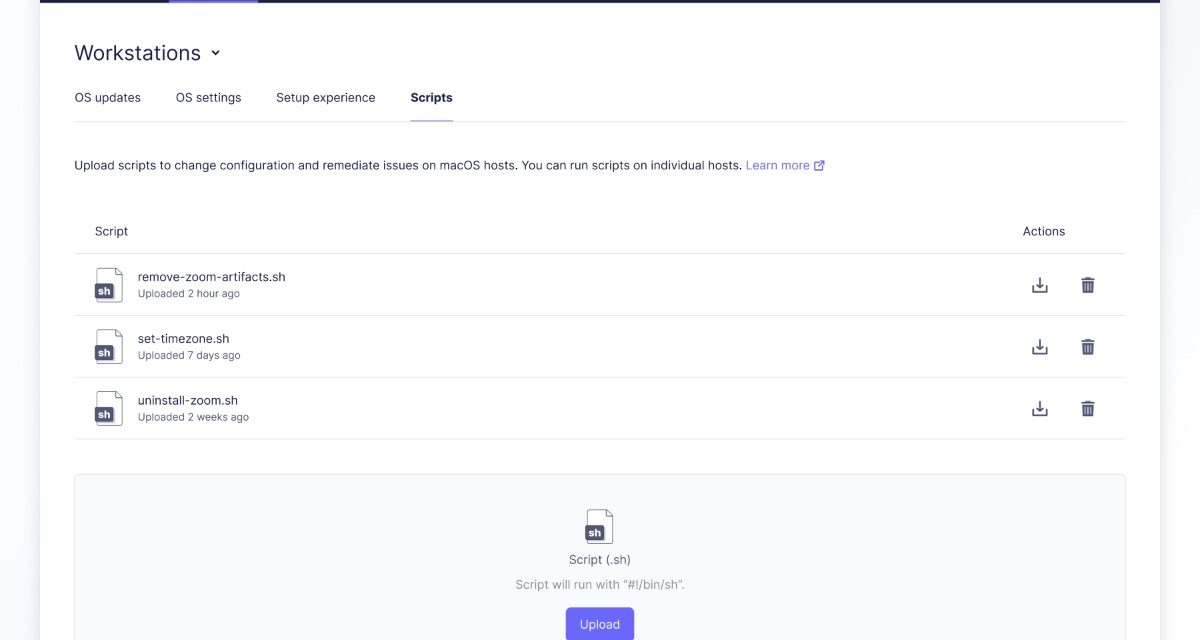Open-source endpoint security company Fleet has announced new script execution capabilities based on osquery, a lightweight security agent currently in use by top enterprises.
New Fleet application programming interfaces (APIs) allow for simpler remediation of vulnerabilities and other endpoint compliance issues on macOS, Windows, VDIs, Linux workstations, OT devices, data centers, and cloud servers in AWS, GCP, or Azure.
Unlike proprietary platforms that can create a blind spot for IT, Fleet lets teams customize their approach to patching and remediation to be more granular. Available via opt-in configuration, this new capability encourages IT and security teams to simplify their stack and go to other teams less, saving time and reducing complexity, according to Mike McNeil, CEO and co-founder of Fleet.
He adds that Fleet enables security engineers and IT admins to safely execute shell scripts via its command line (CLI) or REST API. They do this by writing a simple SQL query to discover which hosts have issues, triggering a script, and then checking the UI or running the query again to confirm, like an automated unit test. Traditionally spread out across multiple systems, Fleet lets people do all of this in one place, limiting sprawl and making it easier to show progress towards security goals.
Fleet’s user interface and REST API make it extremely easy to use, even for engineers new to endpoint management, McNeil says. The underlying technology is based on osquery, which began as an open-source project co-created by Zach Wasserman, CTO and co-founder of Fleet, at Facebook in 2014.
Article provided with permission from AppleWorld.Today



